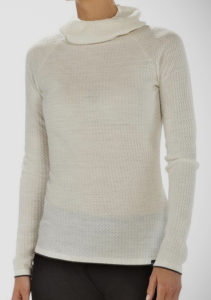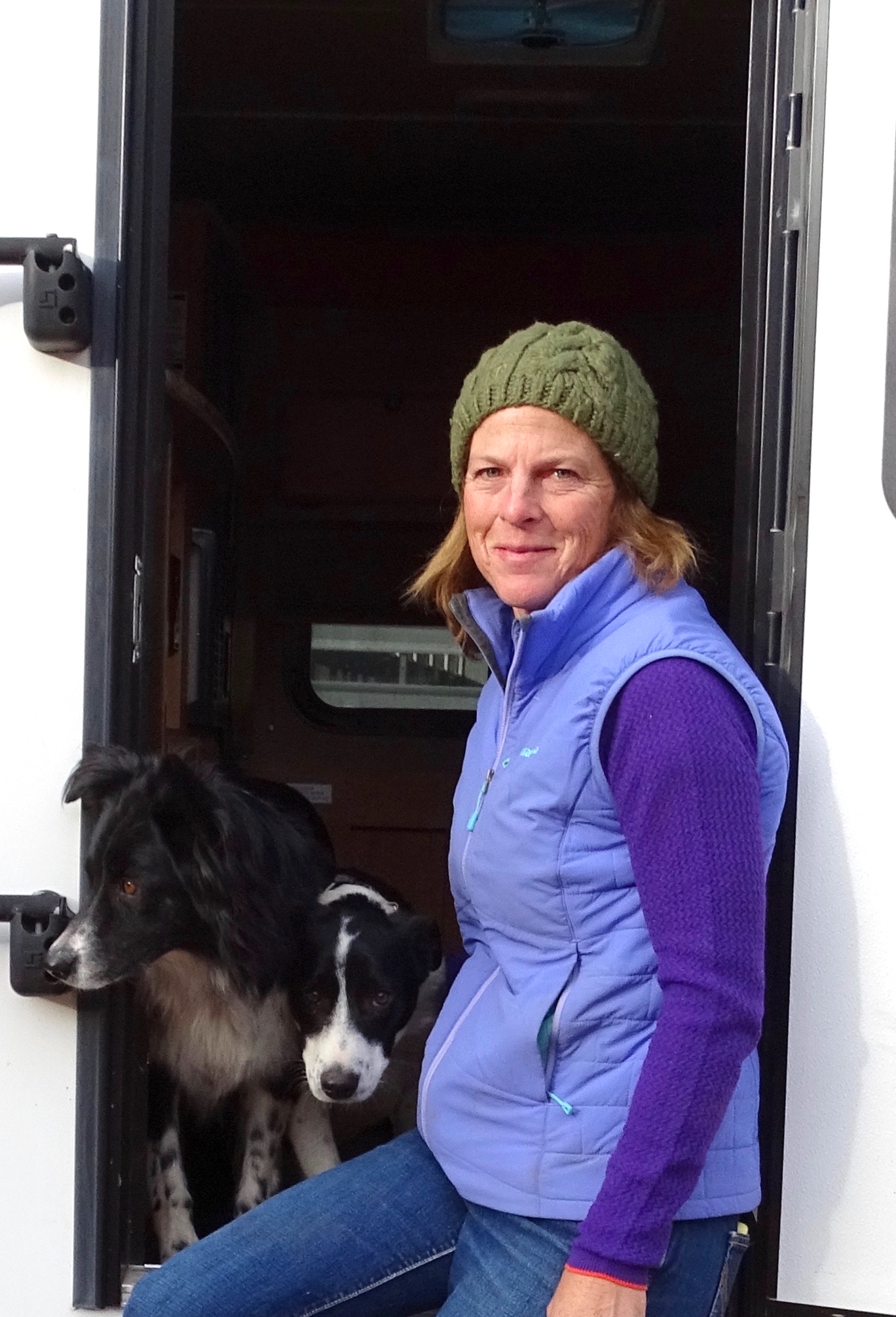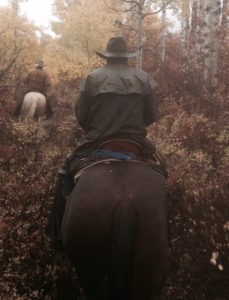 Don’t get me wrong. I love camping of all sorts. But truck camping, one form of glamping, is what I’m doing lately. In a truck camper, you can:
Don’t get me wrong. I love camping of all sorts. But truck camping, one form of glamping, is what I’m doing lately. In a truck camper, you can:
- Sleep on a real mattress
- Overnight at highway rest stops with a locked door
- Carry and cook a week’s worth of meals
- Change clothes in privacy and standing up, even in a crowded parking lot
Call it practical, fun, and luxurious.
Patagonia’s Merino Air Hoody is to baselayers what truck camping is to camping. Both might be pricey  at the outset, but they pay off many, many times and in many, many ways.
at the outset, but they pay off many, many times and in many, many ways.
I wore the itch-free, half wool/half Capilene top over a recent weekend of gathering cows in the San Juan National Forest in southwestern Colorado. One day was sunny and fine. The next day was rainy and raw.
After five hours of moving cows through scrub oak and conifers, we returned to the trucks to swap out soaked chaps, soaked jeans, and soaked gloves. I was cold but my core was warm (in the Air Hoody and a few other layers). It was easy to head back out.
This top has the look and feel of luxury. I’m quite sensitive to the itchiness of wool, but the rich purple knit was soft and comfy on my skin. It’s incredibly light (just six ounces) and easily outmatched comparable synthetic baselayers.

Staying warm in rainy and raw weather
Wool has a natural ability to deal with body odor which meant I could head to bed without smelling me, wear it (with its partner Merino bottoms ) as pajamas without smelling me, and use it the next day without smelling me.
What of the hoody?
Hokey and inappropriate in a base layer? Au contraire.
When it’s down, the hoody sits like a cowl neck but is cooler in the fashion sense and warmer in its usefulness. At night, us campers often resort to digging out a hat and wild rag to keep our heads and necks warm. No need here.
After a hard-working weekend, I washed it (Even with the wool, the Air Hoody’s care instructions are still simply machine wash and tumble dry.) and wore it to a nighttime dance performance in Durango. What other base layer can play dress up?

Details of the Merino Air Hoody